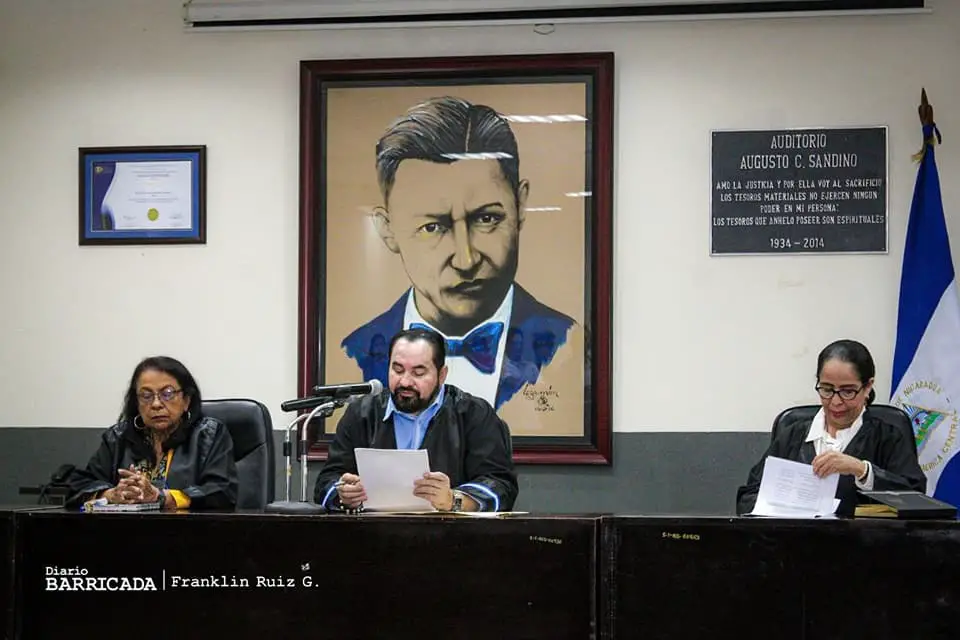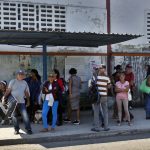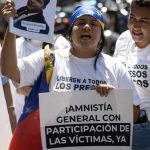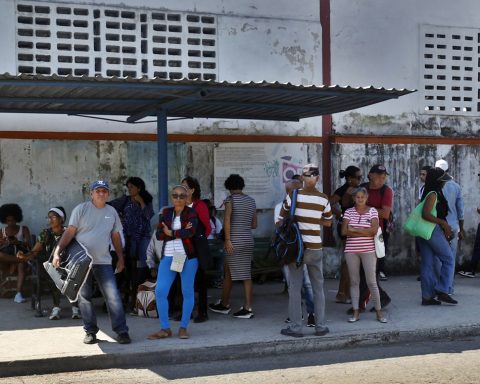The stripping of the nationality of 317 Nicaraguans critical of the dictatorship of Daniel Ortega and Rosario Murillo violates the Political Constitution of Nicaragua, as well as at least six international instruments and treaties, according to humanitarian organizations and legal experts.
The first group that the regime annulled their nationality was 222 former political prisonerswho had been kidnapped in prisons since mid-2021 and were banished from the country on February 9.
The following day, Ortega added to the list Monsignor Rolando José Álvarez, bishop of the Diocese of Matagalpa and Apostolic Administrator of the Diocese of Estelí, sentenced to more than 26 years in prison after refusing to be banished by the dictatorship to US territory.
The second group was made up of 94 Nicaraguans., who are mostly in exile; They were also declared “fugitives from justice.” Among them are the writers Sergio Ramírez and Gioconda Belli; the auxiliary bishop of Managua, Silvio Báez; veteran human rights defender Vilma Núñez; Director of CONFIDENTIAL, Carlos Fernando Chamorro and his wife Desirée Elizondo; and former commander Luis Carrión, Ortega’s former comrade in arms.
To these 94 Nicaraguans, the regime also ordered “the immobilization and confiscation” in favor of the State of Nicaragua “of all real estate and companies” that they have registered in their favor.
The professor of International and Constitutional Law at the Central University of Chile, Edgardo Riveros Marín, told the Efe news agency that “by arbitrarily stripping a person of their nationality, a series of international instruments and treaties are being violated.”
Among others these are:
- The Universal Declaration of Human Rightsapproved by the UN General Assembly in 1948. In its article 15 it establishes: “Everyone has a right to citizenship. No one will be arbitrarily deprived of his nationality or the right to change his nationality ”.
- The American Declaration of the Rights and Duties of Manapproved in 1948. Article 19 mandates: “Every person has the right to the nationality that legally corresponds to him and the right to change it, if he wishes, for that of any other country that is willing to grant it.”
- The Convention for the Reduction of Statelessness Casesratified by Nicaragua in May 2013. Article 9 provides: “The contracting States shall not deprive any person, or any group of persons, of their nationality for racial, ethnic, religious or political reasons.”
- The American Convention on Human Rights, also called the “Pact of San José”, signed in 1969 and entered into force in 1978. In its article 20 it resolves: “Every person has the right to a nationality. Every person has the right to the nationality of the State in whose territory he was born if he has no right to another. No one will be arbitrarily deprived of his nationality or the right to change it ”.
- The International Covenant on Civil and Political Rights, adopted by the UN General Assembly in December 1966. In its article 12, paragraph four, it establishes: “No one may be arbitrarily deprived of the right to enter their own country”. In its article 24, paragraph three, it provides: “Every child has the right to acquire a nationality.”
- The Convention on the Rights of the Childin force since November 1990. In its article 7 it orders: “The child will be registered immediately after birth and will have the right from birth to a name, to acquire a nationality and, as far as possible, to know his parents and be cared for by them”.
The UN Agency for Refugees (UNHCR) warned this Friday that the arbitrary deprivation of Nicaraguan nationality “violates international law”for which they demanded that the Government of Ortega and Murillo “respect its international obligations, guarantee the right to nationality and take measures to prevent stateless persons.”
The body recalled that “the exercise of fundamental rights such as freedom of expression, assembly and others associated with political opinions can never justify the withdrawal of nationality.”
They violate the principle of legality
Article 20 of the Political Constitution of Nicaragua states: “No national may be deprived of their nationality. The quality of Nicaraguan national is not lost by the fact of acquiring another nationality.
And article 21 of the Constitution, reformed last week in the first of two legislatures, establishes: “The acquisition, loss and recovery of nationality will be regulated by law. The traitors to the homeland lose the quality of Nicaraguan national.
The reformed constitutional article, the 21st, must be approved in a second legislature for it to enter into force, that is, next year, argued the Nicaragua Human Rights Collective Never +, in a statement.
The special Law that regulates the loss of Nicaraguan nationality, promoted and approved by the Sandinistas in an expeditious manner last week, “it is based on a reform that is not admissible, because the partial reforms to the Political Constitution of Nicaragua must be discussed in two legislatures, since they affect the entire legal system of a nation,” the agency explained.
It also alleged that “the Ortega-Murillo regime violated the principle of legality, the right to equality and non-discrimination, leaves people stateless, did not respect the guarantees of due process and the special guarantees of child protection.” .
“It was all one-sided. None of the people was notified (it was an absence) about the start of the case, without giving reasons for the loss of nationality; it did not give them the possibility to defend themselves, to have a fair hearing, legal advice and the right to review or appeal their cases,” she mentioned.
For this Collective, “the resolutions disguised as legality of the Managua Court of Appeals are unconstitutional and arbitrary” and are part of “the continuity of repression, the execution of legal atrocities through penalties and punishments against those who think differently and have raised his voice demanding justice, truth and non-repetition”.
*With information from EFE.


















